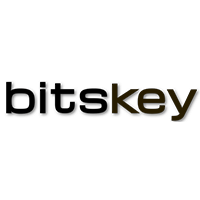Online Higher education to drive the India E-learning market at 62.48% over 2027-28: Bonafide Research.

Online higher education is at an early stage of development in India and has witnessed the emergence of private universities offering online degrees. Higher education courses have a high uptake among the working population opting for a second degree. The current education system caters to only a small number of the eligible population. This demand-supply gap exists for a large segment of eligible students who are unable to pursue higher education. The demand for online higher education is dominated by MBA and MCA courses. Innovative learning methods with faster access can lead to increased acceptance of online education as a distance learning programme in the future.
The recent publication by Bonafide Research entitled "India E-learning (Reskilled Certification, Higher Education, and Language Learning) Market Outlook, 2027-28" states that the market is anticipated to be driven by higher demand for higher education courses by individuals in the country. Post-graduation courses have higher adoption as compared to graduation and diploma courses out of which online MBA is the most popular. Collaborations between corporates and online higher education providers helps employees' to apply for higher education courses without hampering their work front. Mobile phones as a device for learning is gaining acceptance among the current student base, and content creators in this segment are evolving their teaching methodology to adapt to this preference. There is also a high demand for short-term diploma courses in niche subjects as a second degree. Universities are considering offering courses in cutting-edge topics like the internet of things, big data, and artificial intelligence.
Some of the challenges faced today by online higher education providers are as follows. The inability of the online channel to replicate aspects of group learning, peer interactions, and soft skill development is expected to impact the personality development of the individual. Limited practical experience further impacts the courses that require on hand training like medicine, civil and mechanical engineering. The absence or still evolving policy for this category has resulted into limited players. Metros and tier-1 cities have higher adoption of different types of courses. Higher adoption of courses perceived to enhance employability, such as MBA and MCA, in tier 2 cities. Students continue to use the selected brand only if there is a high value for money derived from the subscribed course. Learning methodology and lack of peer pressure are also cited as other reasons for staying with the brand.
In addition to this, online players need to focus on efficient feedback mechanisms to have a higher preference among users. The purchase decision is driven by the quality of study material available on the platforms. The perceived value of the course by students is also important in the selection of a specific platform. A student’s engagement level with a brand is on account of access to online content anytime and anywhere. The time saved on the commute versus the offline channel is another important factor driving engagement levels. A significant proportion of users have indicated that they prefer to pay for the course fees in installments and flexible payment options could further enhance the customer enrollments. Awareness needs to be increased, focusing on the convenience aspect and value-added of the online channel to grow adoption. In some cases, students require video-based content and detailed explanations, while others demand a concise format for ease of revision.
 We are friendly and approachable, give us a call.
We are friendly and approachable, give us a call.
















